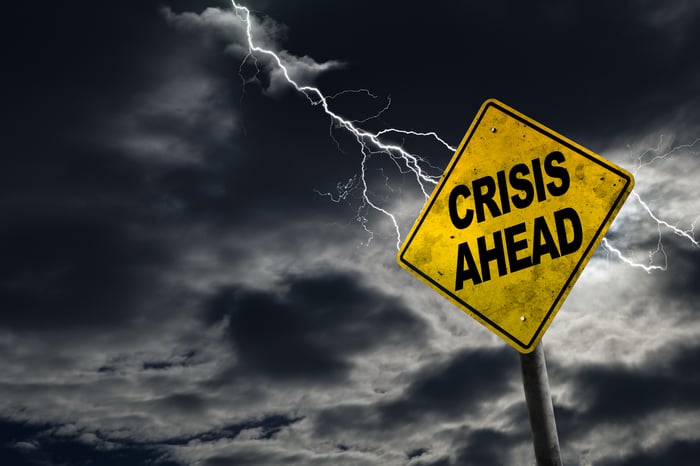"How strange it (the earthquake) must all have seemed to them, here where they lived so safely always! They thought such a dreadful thing could happen to others, but not to them. That is the way!" -- William Dean Howells, A Sleep and a Forgetting
That's how it tends to be with disasters -- natural disasters and financial disasters alike. We know they happen, but we kind of assume they will only happen to other people, elsewhere. If we're sensible, though, we'll realize that we, too, are vulnerable to all kinds of disaster, and that we'd do well to prepare. We might buy insurance, for example, and keep a first-aid kit in our car.

Here are three ways you might avoid financial disaster:
Most of us need a fully stocked emergency fund, and putting one in place should take precedence over many other financial goals such as saving for a home or college. An emergency fund, loaded with enough accessible cash to support you for around three to nine months, can keep you and your family afloat in the event of an unexpected financial loss, like a job loss, a costly health setback, or even a major car repair.
Without an emergency fund, many people end up deep in credit card debt, and that can be ruinous, if your card is charging you, say, 20% or more, as many cards do. Owing $20,000, for example, on a card charging you 20% will cost you around $4,000 annually until you pay it off. And that's just the interest.
Other people borrow from their 401(k)s, but that's also a bad idea, as the money is often never repaid, and ends up costing you in early withdrawal penalties and lost retirement assets.
So stock a special savings account with sufficient funds to cover all your living expenses for a long time. That means not only food and housing, but also utilities, taxes, insurance, repairs, transportation, tuition, clothing, debt repayments, and so on.
Assuming that you have a stocked emergency fund -- and that you're free of high-interest-rate debt -- you should be investing for the future. When you do so, be sure to remain an investor, not a speculator. Here's the difference.
An investor:
A speculator:

Finally, you can avoid a lot of financial struggle later in life by planning for your retirement now, and by saving aggressively for it while investing effectively. Take some time, perhaps with the help of a financial advisor, to determine what your financial state is now, how much income you'll need in retirement, and how you'll amass that sum. Come up with a retirement plan to guide you to reach your goals.
Part of your plan should be making good use of available retirement accounts, such as 401(k) plans and/or IRAs. Just to give you an idea of what's possible, here's how much you might amass over time if you sock away various sums over various periods:
Growing at 8% for:
$10,000 invested annually
$15,000 invested annually
$20,000 invested annually
The more you learn about investing and money management, the better decisions you'll likely make, and the more money you'll probably end up with, come retirement.